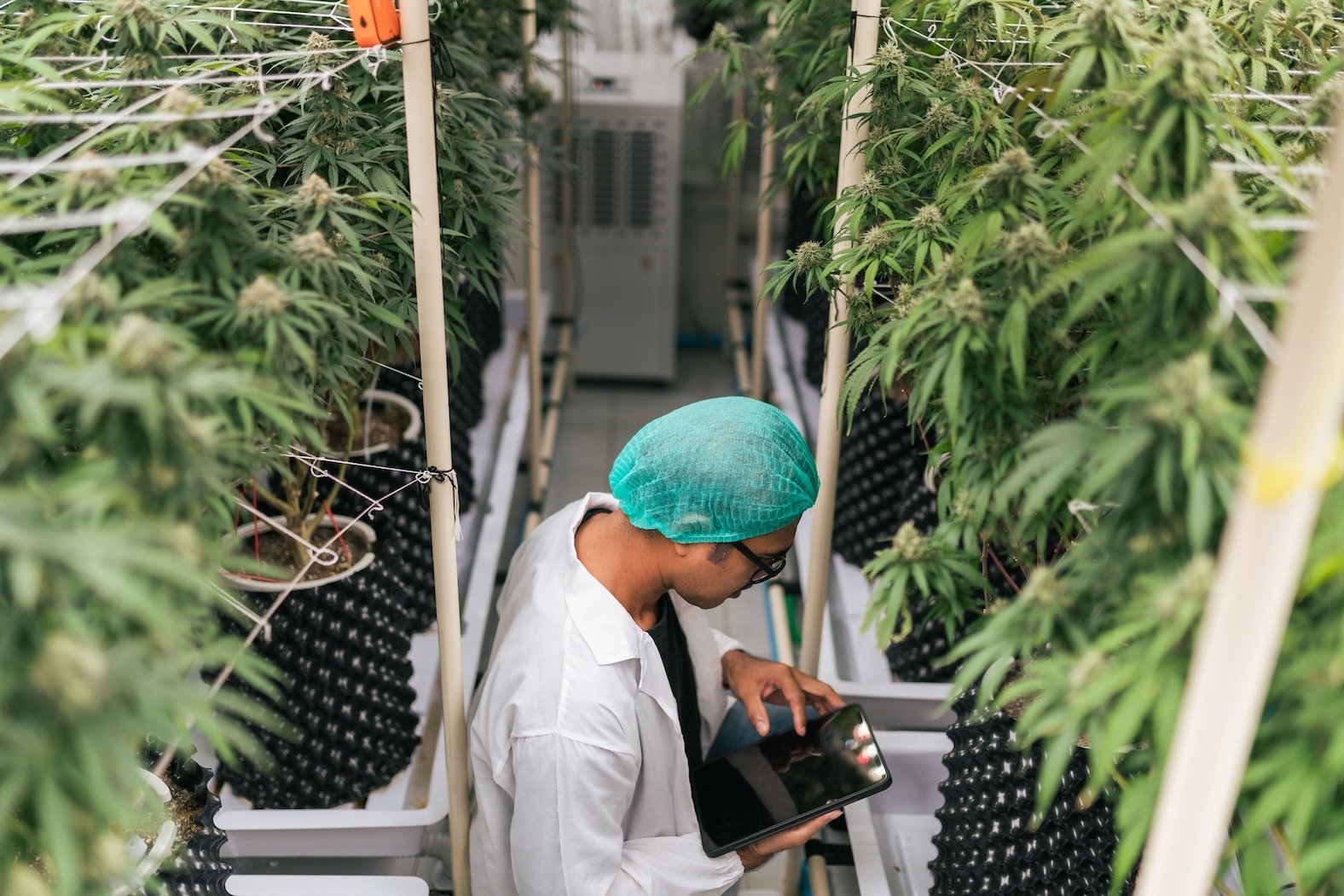
Cannabis isn’t just a plant anymore—it’s a powerhouse industry reshaping culture, commerce, and even how we think about wellness. But behind the glitz of sleek dispensaries and celebrity-endorsed brands lies a fundamental truth: innovation keeps the wheels of this green machine turning.
Cannabis is at the forefront of digital transformation. These two worlds—cannabis and tech—have collided to create unprecedented opportunities for growth and disruption.
Cannabis tech is now more than just a buzzword. It’s the engine driving the future of cultivation and distribution. From AI-powered crop monitoring to blockchain-backed supply chain solutions, the disruptors in this space are dismantling outdated practices and rewriting the rules.
AI: The Grow Room’s Smartest Employee
Forget the old days of guesswork and green thumbs alone—today’s cultivation is driven by precision. Artificial Intelligence is revolutionizing how growers tend to their crops.
Sophisticated algorithms analyze everything from soil health to humidity levels, delivering real-time insights that boost yields and minimize waste. Sensors and cameras powered by machine learning can identify pests and diseases before they spread. The result? Healthier plants, happier consumers, and a more sustainable industry.
AI doesn’t just monitor crops; it helps cultivate them with surgical accuracy. Automated grow systems can adjust lighting, irrigation, and nutrients to match each plant’s needs.
- Yield Enhancement: Automated systems provide precise insights into factors like moisture levels and environmental conditions, enabling improved plant uniformity and increased productivity.
- Resource Conservation: Advanced automation can lower labor costs, enhance control over the growth environment, and optimize crop management to minimize waste.
- Disease Detection: AI-powered image analysis software can detect plant diseases in cannabis crops, enabling early intervention and reducing crop loss.
AI is revolutionizing cannabis breeding and genetics by analyzing complex data to predict strain combinations that deliver desired traits like potency, flavor, and pest resistance. Companies like Phylos Bioscience and Front Range Biosciences use AI to accelerate research, enabling the efficient development of strains tailored to market demands and cultivation challenges.
Blockchain: The Trust Revolution in Cannabis
Trust has been a thorny issue in cannabis ever since the industry crawled out of the shadows. Enter blockchain, the digital ledger technology that’s making transparency non-negotiable. With blockchain, every step of the supply chain is an open book. From seed to sale, consumers and regulators can trace the journey of every gram.
This level of transparency isn’t just about meeting compliance—it’s about building trust in an industry that is still fighting stigma. Blockchain technology addresses critical challenges in the cannabis supply chain by providing immutable records and enhancing traceability. Here’s a glimpse of what blockchain is doing for the green powerhouse:
- IP Protection: Blockchain safeguards intellectual property by securing genetic data, protecting proprietary strains, and verifying ownership through digital tokens and smart contracts.
- Better Sourcing: Blockchain provides detailed insights into product origins, strain characteristics (e.g., THC/CBD content, sativa/indica), testing results, and consumer experiences while protecting cultivators’ proprietary genetics.
- Security & Privacy: Distributed ledgers secure payments, protect customer data, and prevent fraud with robust encryption and instant transaction verification.
- Regulatory Compliance: Blockchain tracks product movement from cultivation to sale, improving safety and adherence to complex cannabis regulations.
- Customer Service: Smart contracts enable seamless point-of-sale transactions, loyalty programs, and enhanced customer incentives.
Robotics & Automation: Streamlining Labor-Intensive Processes
Automation is transforming labor-heavy operations in cannabis cultivation and distribution, improving efficiency and scalability. Robotic trimmers can process hundreds of pounds of flower in hours, a task that would take a human crew significantly longer.
Automated packaging systems, meanwhile, ensure precise measurement and sealing, reducing waste and meeting regulatory requirements with greater consistency. These technologies are vital for scaling operations while managing labor shortages and rising costs.
Data Drives Decision-Making
Data analytics has emerged as a cornerstone for strategic planning in the cannabis industry. By analyzing consumer behavior, market trends, and operational metrics, businesses can make data-driven decisions that boost profitability. Additionally, market trend analysis allows retailers to tailor their offerings based on shifting consumer preferences, ensuring they remain competitive in an ever-changing landscape.
Wrapping Up
For cannabis industry leaders, embracing these technological advancements is no longer optional—it’s essential. AI enables precision cultivation, blockchain fosters transparency, robotics drives scalability, and data analytics provides actionable insights. Together, these innovations create a future where the cannabis industry is more efficient, trustworthy, and sustainable.
Lead the green revolution with Rolling Stone Culture Council—where cannabis innovators connect, disrupt, and define the future of culture. Click here for more information and to apply today!
